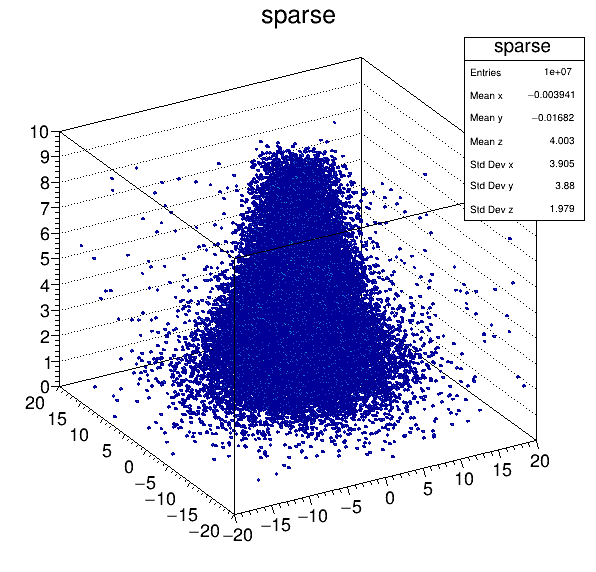------------------------------------------------------------------
| Welcome to ROOT 6.26/06 https://root.cern |
| (c) 1995-2021, The ROOT Team; conception: R. Brun, F. Rademakers |
| Built for linuxx8664gcc on Jul 28 2022, 18:08:51 |
| From tags/v6-26-06@v6-26-06 |
| With c++ (Debian 12.2.0-14) 12.2.0 |
| Try '.help', '.demo', '.license', '.credits', '.quit'/'.q' |
------------------------------------------------------------------
I am experiencing problems when filling a THnD histogram using Take. It seems that the results when I enable MT are unstable, each execution leads to different results.
testMT.C (1.4 KB)
So, each time I execute root -b -q testMT'(true)'
root -b -q testMT.C'(true)'
Processing testMT.C(true)...
N-values filled: 10000000
Content 142
Nbins : 685848
(int) 0
root -b -q testMT.C'(true)'
Processing testMT.C(true)...
N-values filled: 10000000
Content 164
Nbins : 685848
(int) 0
The content of the bin I am evaluating produces a different value, that it is in fact much different from the value I get when MT is not enabled.
When I execute: root -b -q testMT'(false)'
root -b -q testMT.C'(false)'
Processing testMT.C(false)...
N-values filled: 10000000
Content 393
Nbins : 685848
(int) 0
root -b -q testMT.C'(false)'
Processing testMT.C(false)...
N-values filled: 10000000
Content 393
Nbins : 685848
(int) 0
The result seems to be stable.
I prepared an AnalysisTree with 10M entries, because with 1M entries the result was stable. So it might be connected with the size of the dataframe.
I placed the file at the following location. https://sultan.unizar.es/exchange/AnalysisTree10M.root
Please, we need some insights on this topic!
